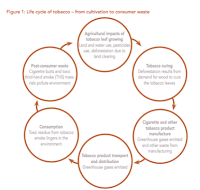Drawing project
This drawing project began as a way for me to return to a more illustrative style of drawing that i used to really enjoy and in the last couple of years have stopped doing. I feel very strongly about issues surrounding the environment and wanted to find out more about sustainability, over consumption and what we can do to help.
My research started by looking at the 10 most frequently littered items, the top non surprisingly being cigarette butts. cigarettes are full of toxins that seep into waterways, and the filters are made of plastic and can take up to 80 years to decompose.
The second most littered product, again not surprisingly is plastic water bottles... then plastic shopping bags etc. I quickly got bored of drawing various types of rubbish and decided that it would be more useful, in terms of informing people, to make something like a zine or an informative booklet.
I started doing some illustrations that focused on excess, consumption and bad shopping habits.
I really enjoyed drawing in this way and felt like I wanted my drawings to follow more of a narrative. This is where the idea of writing and illustrating a short children's book came about, I thought about who would benefit most from the information behind my drawings... possibly adults but ultimately they should know most of this information already and children will be much more engaged in the story I planned on writing, I thought.
I started by making a story board and coming up with the general idea of the story, thinking about what I wanted my audience to learn and illustrated along the way.
I produced a survey and got responses from parents with children of varying ages, the most common being between 6-8, implying to me that that age bracket was the most relevant and knew the most about sustainability. Most of the parents that answered my survey made attempts with their child regarding teaching them about sustainability as well as mentioning them being taught about it in school. Some were hesitant to teach their child too much, concerned about scaring them but other thought it was important and it can be taught in a non-frightening way.
This survey really helped me understand what children already knew so i could tailor my book to make sure it was informative but familiar.
I then ask the children of that age group directly, with the help of a friends mum (headteacher of a London primary school) a year 3 class were asked the following questions
Do you know what sustainability means?
Do you recycle?
Do you reuse materials for craft and play? such as cardboard boxes, plastic bottles etc.
Are you aware of the impact plastic has on the environment?
Do you learn about sustainability in school?
Would you like to read a book that could teach you more about sustainability?
How does talking about the environment make you feel? (scared, sad, happy, inspired)
Do you think it's important to look after our planet?
Most of them answered yes to knowing about sustainability, recycling etc. but their responses to how it makes them feel was really sad. A lot of them saying it makes them feel sad, useless, one even saying " It makes me sad because I was the one who also threw away plastic". This made me realise that I need to create a story that shows children what they can do to help in order to not feel useless, but approach it in a way that won't make them feel scared and responsible.












Comments
Post a Comment